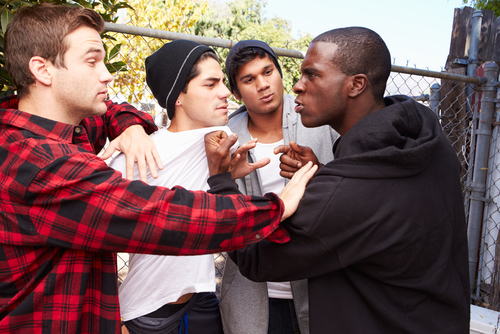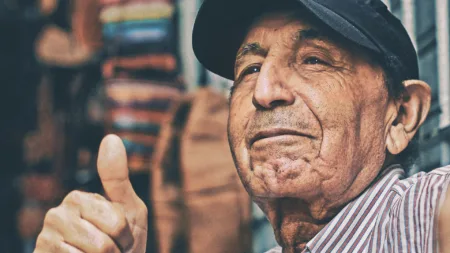Since 2020, the homicide rate in the city of Milwaukee, Wisconsin, has risen by 43%. A group of people has come together to focus on violence in the community, especially in Walker’s Point and the old north end.
They call themselves “violence interrupters.” Ray Mendoza is part of the group, and he says their goal is pretty straightforward. “What we’re trying to do is stop people from killing each other,” he told a local TV station. [[1]] Here what he has to say abut the program here:
When Mendoza talks to kids and teens in his community, it is with a voice of experience. He spent 17 years in federal prison.
“What we’re trying to do is to stop these young people from ruining their lives and ending up like me,” Mendoza said.
Their work seems to be making a difference. Although the rate of violent crime is rising in the city overall, it is down 50% from the previous year in Old North Milwaukee. The neighborhood saw a 75% decrease the year before.
In Walker’s Point, the homicide rate is down 100% from the previous year.
The Group Works with the Office of Violence Prevention
Mendoza and his fellow violence interrupters are part of 414 Life, a program within the Office of Violence Prevention in Milwaukee. Their work is based on the approach that Cure Violence first developed in Chicago. [[2]]
Reggie Moore serves as the Director of Violence Prevention Policy and Engagement with the Medical College of Wisconsin in their Comprehensive Injury Center. He says the program employs individuals with the skills, credibility, and relationships to mediate conflict immediately.
“[We want] to engage community members in understanding their power in preventing violence, but also being mediators within their own families in their on social networks,” Moore said. [[3]]
The group tracks over a hundred different data points to help work with community members to find more peacemaking solutions. The Cure Violence database is used for monitoring the information they gather.
They also work with people between the ages of 18 to 35 that go to the hospital with a gunshot injury and want help from 414 Life.
“If we have a simple message for a complex problem,” Moore said, “it would be for people to really just pause and think about the decision they’re making.”
Violence Is Often More About Frustration Than Desire
Mendoza said that it was difficult to adjust back to the routines that society expected when he returned home after spending time in prison.
“I was institutionalized,” Mendoza said. “I was dealing with the trauma of being incarcerated and trying to reacclimate myself to society. I was having a tough time.” [[4]]
He said that finding a support group helped him find a path that enabled him to become the version of himself that people see today. When people see that you have a felony conviction, Mendoza says that most people won’t offer chances. After finding a support network, he could talk about what he needed to get off his chest.
Now, Mendoza provides that support for others to help interrupt the urge to commit violent acts in his city. He doesn’t expect miracles. He believes that when at least one or two people receive the help they need, they can be a bit more successful in life. “That isn’t going to end all their difficulties,” he said, “but it’s something.”
With the goal of stopping teens from committing violent acts, 414 Life looks to provide mentorship opportunities to young adults. It’s an effort that is working in Milwaukee and many other cities globally.
For mentorship programs to work effectively, volunteers are needed to engage with youth in ways they understand. That process starts when the adults in the conversation build relationships grounded in trust. It’s essential to have fun together while pursuing activities or discussions that have meaning.
It is easy to talk in a mentorship relationship, but listening is often a more critical skill. It gives people an opportunity to share their experiences or stories without feeling like they’re being judged by the process.
“If we can stop one person a day from doing something negative,” Mendoza said, “from ending up in the penitentiary or the graveyard; if we can stop one person, we did our job.”
References:
[[1]] 'Violence interrupters' believe they are making positive difference (wisn.com); [[2]] 414Life (milwaukee.gov); [[3]] 'Violence interrupters' mediate conflict, help victims, priority Milwaukee neighborhoods (wisn.com) ; [[4]] Project Return Has Helped Thousands After Incarceration » Urban Milwaukee












